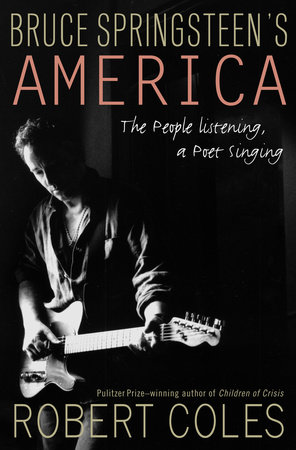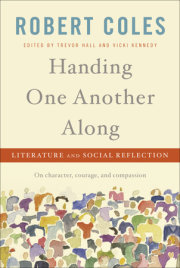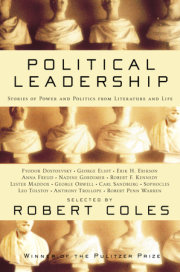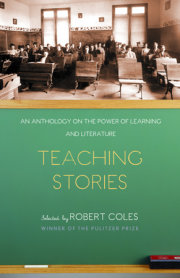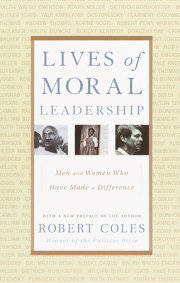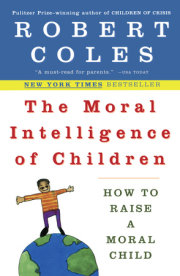Chapter 1
Conversations and Songs About Life
THE ORIGINS OF THE IDEA FOR THIS BOOK, AND OF THE decision to do the work that made this writing possible, go back to the late 1940s and early 1950s, when I was a college student studying the writing and working life of a New Jersey physician and poet, William Carlos Williams, who lived in Rutherford and ventured sometimes to Paterson and other cities of the Garden State. An enormous privilege and a continuing education it was to sit in his car and hear him speak of the patients he was treating for a wide variety of illnesses and complaints. Back at his home, at 9 Ridge Road, the doctor was not loath to take on various "principalities and powers," whether of the university world or of his home state and, beyond it, the American nation, which he both loved ardently and regarded closely, critically. I'd often sit surprised, perplexed, or uneasy as I heard outpourings of dismay or disgust follow expressions of his admiration and affection, directed at individuals or causes or points of view of which I knew very little, or nothing. I was learning so very much through the eyes of a busy physician who made house calls and who scribbled notes afterward about what he'd heard, seen-and, I was being prompted to do as he did: attend the individuals I was meeting as a medical student, then a hospital physician, in such a way that I learned how their lives were unfolding as well as how their medical difficulties might be figured out, then challenged. All that I took pains to get down for myself-not only through hastily written notes but with a tape recorder, at the time not so easy to use as the present-day ones, which are so much smaller, lighter, and more accurate in what they capture for one's future attention.
One day in October 1954, as I sat with Dr. Williams in his office, hearing him talk about one of his patients, a teenager who had been struggling with polio and now had pneumonia, I was suddenly asked, "Have you listened to Frank Sinatra do his singing?" The question seemed to me to come out of nowhere, and I was initially so preoccupied with trying to understand why I had been so queried that I had no answer at all. Dr. Williams was a fluent, discerning conversationalist, and a sharply knowing observer of those with whom he spoke-and so, within a few seconds, I heard this: "You're flummoxed [he loved using that word]; you're wondering what that singer, Sinatra, has to do with what we were just talking about-a kid who can't walk without crutches, and now is coughing badly, so she has her parents even more scared than they usually are."
I sat there silent, still not sure what to say. I wanted to nod a signal of agreement (if not of confession, in response to an implied criticism). Immediately, he added this amplification: "Look, whether we're young, or we're all grown up and just starting out, or we're older and getting so old there's not much time left, we're human beings-we're looking for company, and we're looking for understanding: someone who reminds us that we're not alone, and someone who wonders out loud about things that happen in this life, the way we do when we're walking or sitting or driving, and thinking things over." A pause, and then a further, and more extended foray into our humanity, its various forums of expression: "I mentioned this guy, Sinatra, because he's very much present in the homes, in the lives, of my patients. He's 'a New Jersey boy,' they'll tell me (as if I don't know!) 'and now he's gone national,' one dad told me, contemplating the pictures of Frankie-boy all over his daughter's room. Yeah, yeah, I said to myself, as I got ready to use my stethoscope and then my [neurological] hammer to check out her reflexes. But afterwards, doing my thinking as I often do, while driving home, I kept hearing Sinatra sing-in my head and, in a way, through that girl's head. Her name was Sally Ann, and she called herself, over and over, a Sinatra fan. I pretended ignorance, hearing her talk like that (an old trick of the medical trade: let the patient do the talking, and you do the listening, the learning)-and the less I seemed to know, the more I ended up finding out about Frank Sinatra, naturally, but also about this fan of his, who was also my patient.
"I came home and told Flossie [his wife] about that (Sinatra and my patient), and I learned even more. 'Bill,' she told me, with a little of the surprised teacher in her, 'he's so popular with young people; he's their hero, and you should listen to him, hear with your ears what their hearts are taking in.' She gave me that kind but stern look, always successful in getting my head to shift gears! Next came the words, four or five of them (I'm always adding them up, when I can): 'He's from New Jersey.' All right, I told her, this New Jersey boy will tune in on that one, Sinatra-like so many of my patients have been doing. I didn't mention, then, to Flossie that a lot of my patients had already told me that Sinatra was a 'Jersey boy'-I wanted her to have the pleasure every teacher has, of being there first with a student, and besides, I think I knew in my gut that hearing Flossie say what she did would get my head going real good! A good singer does that-gets our minds going: makes us look at life with an intensity that comes from her or his head, heart, taking hold of our own."
Those words (that way of seeing things, of listening to people, and indeed, listening to those whom others regard so closely, through attending what they say and sing), would stay with me over the years. A few years later, I was myself getting to know families in their homes, or children in their schools, where they were daily learning their letters and numbers. I was teaching in college classrooms and in elementary and high schools across Boston, then the United States. That research (doing documentary fieldwork) has been written up, as has my work with teachers of my own: Erik H. Erikson, in whose college course I was privileged to teach; Dr. Williams, whose writing, whose strongly felt thoughts and beliefs, I keep offering in my class; and another American physician and writer, Walker Percy, whose eyes were often focused on the shifting social and cultural scene in the United States, whose ears took in so many of the sounds that come our way through the radio, the movies, and television, and whose reflecting mind was constantly trying to make sense of those "messages," he often called them, that come our way, sometimes calling upon our attentive notice, sometimes slipping us by altogether.
Even as I heard Dr. Williams trying to figure out what his patients "made of Sinatra" (his way of putting it), got out of his singing as they heard it or recalled it, I would hear Dr. Percy contemplating the America of the 1960s and 1970s: what seemed to matter much to us and, as well, who was on many of our minds. He was no poll taker, but he had his eyes open to the way people wanted to appear, and his ears concentrated on the sounds Americans sought out: announcements, reports, inquiries, exclamations, and not least, music, all part of the daily fare of broadcasting, and of the records and discs and newspapers and magazines constantly being pressed upon us in stores and through advertising.
Once in his Louisiana home, as I was hearing him speak of friends and neighbors, he interrupted himself and spoke earnestly and with animation about someone he called "my favorite American Philosopher." I knew of Dr. Percy's strong interest in philosophy (a subject in which he majored as a college student), and I had heard him talk at great length, and with a certain passion, about the existentialists whom (from Kierkegaard through Camus and Sartre) he had studied and whose ideas he had worked gracefully rather than didactically into his novels The Moviegoer and The Last Gentleman. I was now eager to hear about this "favorite," and soon enough I did: "It's Bruce Springsteen all the way for me. He's 'on to us,' as the young people now say it when they talk about someone who has figured someone else out 'heart and soul'-the expression some 'existentialists' use to describe a human encounter that sticks with the people lucky enough to have one, during the headlong course of a year. I listen to him singing, and I think (I hear my mind saying with great enthusiasm): Hey, this guy has got it! What Kierkegaard called 'everydayness' this singing American knows in his bones: how we get lost in our thoughts, lose sight of one another, courtesy of the distractions that come upon us (so constantly in what gets described as an 'affluent society')-but also, how we find ourselves, through finding one another.
"His songs are about America, without hyping the country up (becoming patriotic self-congratulation) and without knocking the country down (becoming mean-spirited nation bashing). You could say it like this (alternatively): He skips the America bragging of the [political] right and the America slamming of the [political] left; that's no mean feat-and you can tell, hearing him, that this is no clever trapeze artist, trying to have it his very own way and dropping all the ideological baggage that will make him enemies all over the place. I'd call him smart for doing that, and I'd admire his songs if they did only that-walked the middle American way. But he goes beyond that fence-straddling act, way beyond. This guy is his own boss-he's earned the title [the Boss] every inch of the way: he sings of us while singing to us, and what you hear (the one you're hearing) is a plain, ordinary guy soaring way above himself and everyone around him through his voice, and through the songs he's written, not composed. He sings what he's got to tell you, straight out, but he's not an 'artist' going up and down the musical scales; he's a talking Joe, nabbing his next-door Americans, his neighbors, and letting them know, after he gets them listening, that there are things he's seen (people and where they live) that have really heartened him-and you know, when you really care about someone or something it comes across in your voice."
There was even more, to the point that I joked with Dr. Percy, told him he was a "fan" all right. For the first time I'd heard him favorably inclined to a living (and popular) American-it ordinarily being the other way around: a certain wry bemusement at best, or more ordinarily, a thoroughly detached skepticism. "I don't know if I'm becoming a 'fan,' " I heard in response, and then this self-observation: "I think I'm carrying on a conversation with the guy: he says something, sings something that really says something, and then I get back to him, at him, with him, in my wondering head, wandering all over the map, as usual. I'll bet there are plenty like me out there: his 'audience'-a much too impersonal and abstract way of lumping us together. (The 'existentialists' were right to worry about that kind of thinking, including their own, when they used that word [existentialists] to describe themselves!) We're all having enough trouble making sense of this life, of who we as individuals are, without turning us into members of a herd, even a national one! But it sure would be great if some of us, who talk to ourselves, hearing a singer talking to himself, then to us, with his own words that he uses to make music-if some of us heard each other doing our talking with our talking buddy, I call him. (His fans are so 'into' this sharing of ideas and attitudes that they call him by his first name, and a lot of them, I know, aren't teenagers all charged up: they're listeners talking.)"
Soon thereafter Dr. Percy had died-having sent a warmly appreciative letter to the Boss, who knew well of Percy's work but couldn't get back to him, having learned of his death. Soon thereafter I began the work that made possible this book. I started talking about the conversations I'd had with Dr. Williams and Dr. Percy in my ongoing discussions with Erik Erikson; I was teaching in his college course, and as we talked about the students, and the American world around us, the name and work of Bruce Springsteen came up. Especially, I spoke of Dr. Percy's admiration for the Boss. Ever-knowing and exact in his way of speaking, Erikson remarked: "There's an American who knows Americans so well that their voices become his own!" Yes, indeed-and I began to realize that through listening to Springsteen, I was myself yet again carried to certain neighborhoods, homes, schools, backyards, playing fields, places of worship where I'd been as I was getting to know fellow citizens of a country we all share.
The result, finally, is what follows-stories that tell by indirection about an artist's impact upon, connection to, responsive American lives. This book offers the voices of individuals, as they spoke to me and I wrote these comments down. All of them were "born in the U.S.A.," but none of them are avowed Springsteen "fans," who go to concerts and follow all the news about this person being held up so high, even idolized. These are Americans going about their daily, ordinary lives, and taking the time, here and there, now and then, to heed a singer's voice: the words of the songs he sends forth, available on radio, or on albums purchased and played-often by others, husbands or wives or children or relatives or friends or neighbors or fellow workers or schoolmates.The result, finally, is what follows-stories that tell by indirection about an artist's impact upon, connection to, responsive American lives. This book offers the voices of individuals, as they spoke to me and I wrote these comments down. All of them were "born in the U.S.A.," but none of them are avowed Springsteen "fans," who go to concerts and follow all the news about this person being held up so high, even idolized. These are Americans going about their daily, ordinary lives, and taking the time, here and there, now and then, to heed a singer's voice: the words of the songs he sends forth, available on radio, or on albums purchased and played-often by others, husbands or wives or children or relatives or friends or neighbors or fellow workers or schoolmates.
Copyright © 2003 by Robert Coles. All rights reserved. No part of this excerpt may be reproduced or reprinted without permission in writing from the publisher.

